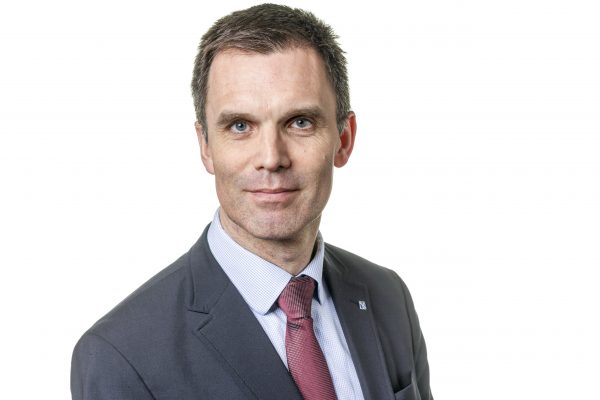
CBS – the organization of opportunity
CBS is a place where you have the possibility of making a difference by engaging – by taking advantage of the many opportunities that the organisation provides and by facilitating opportunities. In other words, entrepreneurship and innovation have always been part of the culture at CBS.
I have countless examples of this. I have worked at CBS for more than twenty-one years, as associate professor, professor, head of department and dean. But these are mere job titles that do not tell what you have (co-)created in the job. With great colleagues at CBS, I have co-created new courses, programmes, research projects, dissemination projects, new ways of recruiting, Business in Society (BiS) platforms, new leadership development … and much more.
Let me give three examples – I would have enough to write a book:
When I first arrived at CBS in 1996, I joined the Department of Economics. At the time, it was a small department – and dwindling. Kind colleagues from other departments suggested closing it altogether since – in their view – it did not produce any significant research and only taught elementary courses at the undergraduate level such as microeconomics and macroeconomics. These courses could easily be outsourced either to the University of Copenhagen or to adjunct faculty. It did not make the situation easier that the most research-heavy part of the department, the Economic Policy Research Unit (EPRU), a centre of excellence funded by the Danish National Research Foundation since 1991, decided to move from CBS to the University of Copenhagen in 1998. It seemed like an uphill battle.
We picked up the gauntlet. One of the initiatives was the establishment of a new MSc concentration called Applied Economics and Finance (AEF). We did this because we wanted to supply a new set of competences that was only partly covered by the concentration Finance and Accounting taught in Danish. At the same time, it gave members of the department an opportunity to teach at a more advanced level which was important for the recruitment of international faculty. Our suggestion that AEF should be taught in English was met with resistance in the department: People were worried that we would not be able to supply the teaching in English! Today, AEF is a well-established concentration which has long proven its value to the job markets in Denmark and abroad.
My second example is about never wasting a good crisis! In the wake of the financial crisis of 2007/2008, many American universities and business schools were unable to recruit newly minted PhDs as assistant professors in the numbers they were used to prior to the crisis. At that point in time, I was heading the Department of Economics, and we grabbed the opportunity to go on a hiring expedition for economists in the American job market. Early 2009, we recruited five assistant professors. This gave CBS a positive reputation in the important international job market, and we have exploited this reputational opportunity for international recruitment ever since.
My last example is about how we also facilitate opportunities. Mid-2016, we issued a call for new BiS platforms. We got fourteen letters of interest indicating a vast array of creativity, entrepreneurship and innovation at CBS. The topics covered for example leadership, circular economy, mind sciences, Africa, data in society and arts & culture. After a careful selection process, we chose three topics to become full BiS platforms (Inequality, Diversity & Difference, Transformations), but we also suggested that some of the other opportunities should be developed further, partly with CBS seed funding.
My sense of CBS is that it is an organisation of opportunity. If you have the energy, you can create new initiatives. You may have to work around obstacles, but such are the working conditions of entrepreneurs and innovators. There is a lot of innovative, entrepreneurial energy flowing from all cracks and corners at CBS which should cause Senior Management to always feel the heat of creativity – and work hard to release it as much as possible within the limited resources that we have. But evidently, you need not rely on Senior Management to make an initiative fly. Often it can be done locally.
CBS orchestrates opportunities – in research, education, external funding, academic citizenship and dissemination. So… just do it!
